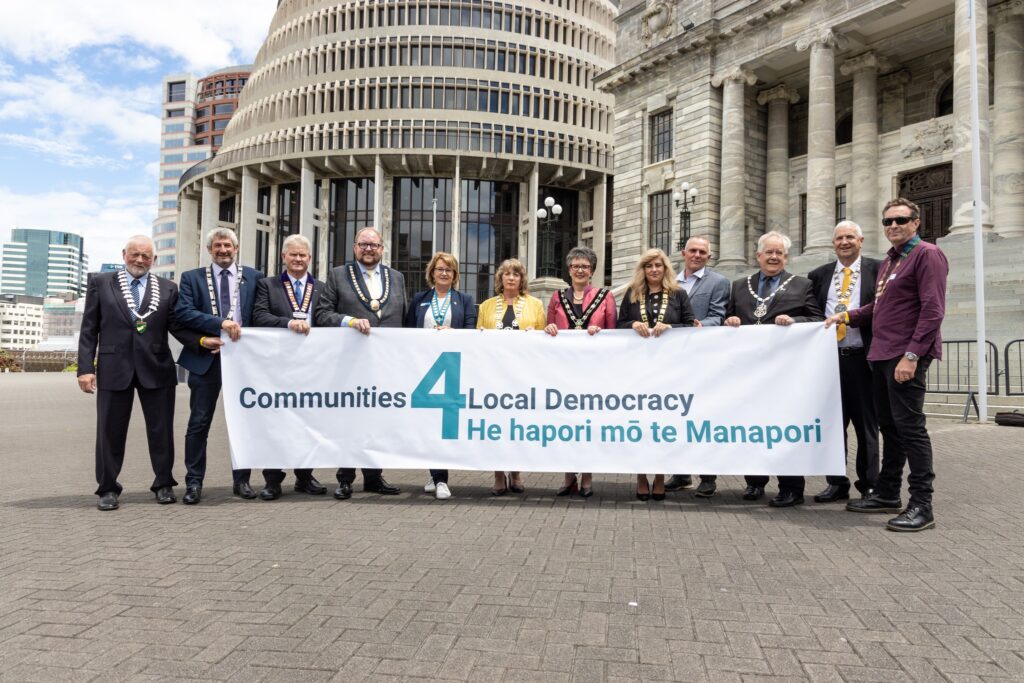Regular readers will remember my absolute distaste toward the 3 Waters policy rammed on our communities throughout NZ by the Labour Government. People will be expecting me to be jubilant that the government intends to scrap the badly thought through water plans of the previous government.
However, I am a bit worried. I don’t think the National Party has thought through what exactly they intend to replace this legislation with, and the impact their delaying call will have on local government. This uncertainty impacts on the deliberations of the people writing the Long-Term Plan (LTP) at CCC. This plan is based on the estimates of known expenditures over the next 10 years. What must be being considered is ‘what will the government do to replace existing legislation?”
Bernard Hickey wrote last week:
The impression from the centres of power in the Beehive and ministries in Wellington at the moment is of a frenzy of action designed to ‘get New Zealand back on track’ and fire up the ‘mojo’ of businesses, developers, officials and builders of all sorts.
In reality, planners in councils, property development offices and in the boardrooms of infrastructure builders and founders are quietly putting down their pens, closing their spreadsheets and putting their blueprints back in the drawers. That’s because every development, every new road, every new pipe depends on a decision by a council to re-zone land and to green-light investments in laying pipes, building roads and connecting them all up to existing networks. That decision, in turn, depends on a cavalcade of resource consents, debt issuance, environment court processes and, ultimately, political decisions about who pays for all this public infrastructure, and how. The dominos can’t all fall in the right order and the right direction until those decisions are made.
In essence, the new National-led Government has no coherent or over-arching strategy for funding the at-least-$200 billion of public infrastructure needed to catch up with past population growth, let alone deal with the latest explosion. It has talked vaguely about engineering ‘city deals’ that somehow bring in private capital to help councils fund developments, but none have been done at the necessary scale or speed.
It’s not too late to rethink what was essentially a messy system for 3 Waters. Why the hell Labour copied the Scots system goodness only knows. I wonder if the closing date for the Long-Term plans should be delayed while the government negotiates an alternative system.
Last week an announcement was made by Mayors 4 Local Democracy (C4LD) who had resisted the reforms:

Mayors from across New Zealand are looking forward to working with the new government to deliver better and more sustainable water services for everyone.
Members of Communities 4 Local Democracy He Hapori mō te Manapori (C4LD) are welcoming a commitment by the new government to immediately stop work on the three waters transition and to repeal the Water Services Entities Act within their first hundred days.
C4LD Co-Chairs Manawatu District Mayor, Helen Worboys and Waimakariri District Mayor, Dan Gordon said that councils throughout the country are keen to work constructively and in partnership with the new minister of Local Government, Simeon Brown.
“The change in Government is a good opportunity for Wellington to reset its relationship with Local Government and work with us on the three waters reform we need, rather than telling us what reform we are getting,” they said.
“All the parties forming the Government were critical of these reforms, and both National and Act campaigned on the promise that they would repeal the Water Services Entities Act.
“Our member councils are welcoming the commitment by the new Government to ensure these assets remain in local ownership and local control.
“From this point, and equipped with the information that’s been gathered to date from the reform process, councils can take the lead on delivering better water services for their communities and ensuring they are affordable and sustainable in the long term.”
As part of its advocacy work, C4LD developed a detailed alternative plan for reform that would deliver the necessary infrastructure investment while respecting community property rights.
“This work has provided the new government with a solid foundation on which to build a future replacement to the law,” they said.
“It protects community property rights in their water assets, recognises that different areas are in different positions, and it encourages regional collaboration to address these differing needs. This approach ensures that local knowledge of these complex systems is valued.
“That majority of what the coalition partners campaigned on was in line with our thinking on the key issues of strong community support for ownership, influence and effective control staying with councils.
“Our door is always open to work together on a sensible plan that builds consensus and works for everyone.”
It’s good to see a Canterbury mayor, Dan Gordon, leading this thrust to maintain local control.
- Website: Communities 4 Local Democracy has published all its work on future models of water reform.

” No matter how far down the wrong road you’ve gone, turn back.” Turkish Proverb